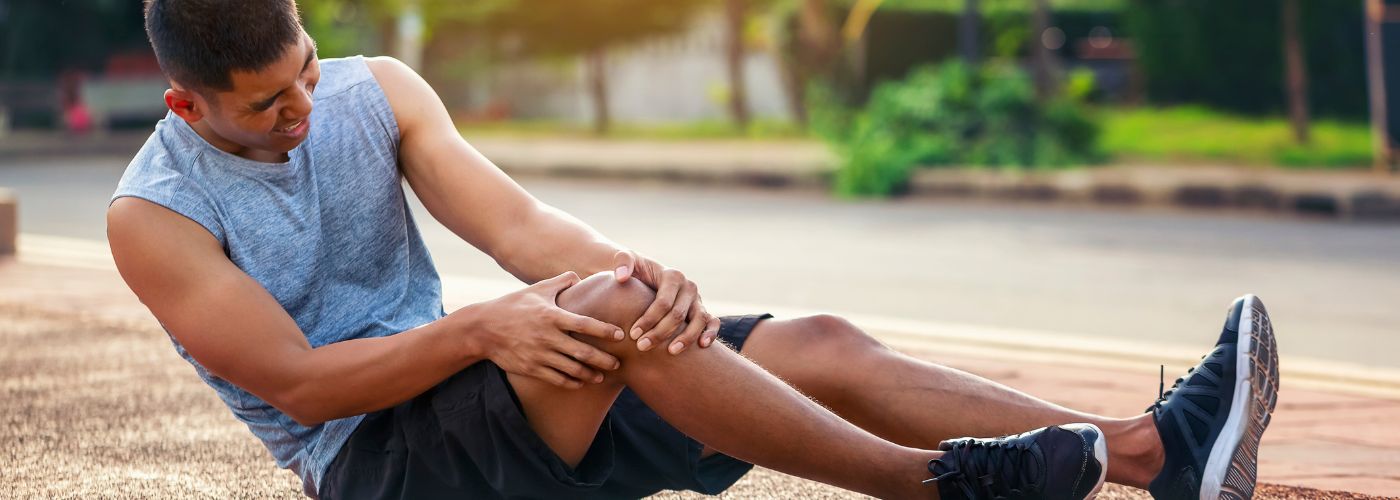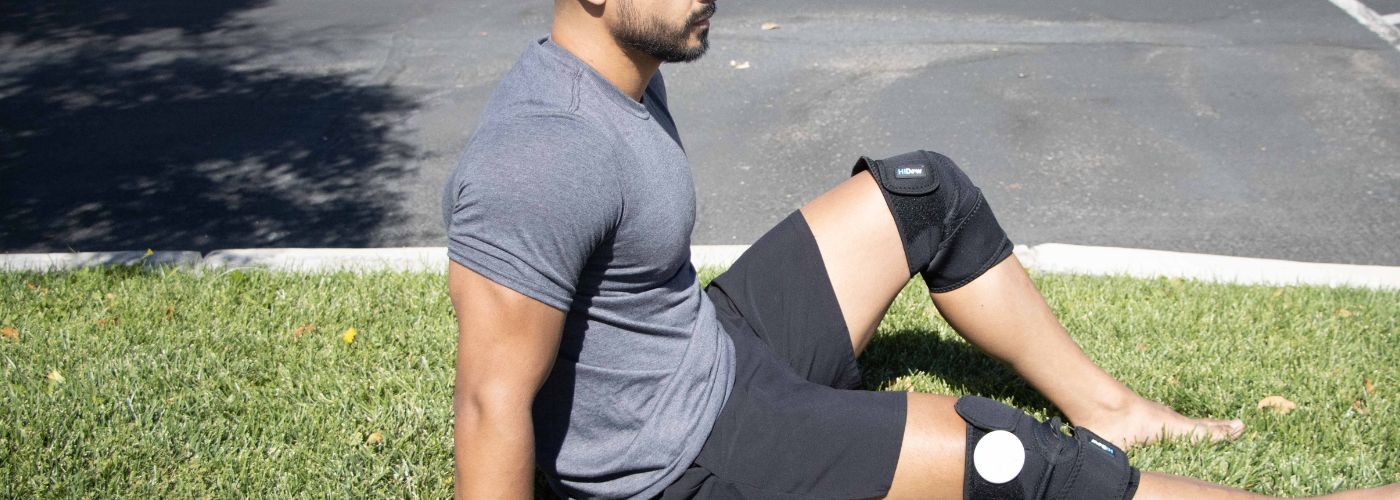Muscle cramps are a common condition that can affect anyone at any age. Unfortunately, these painful and often unexpected spasms can make everyday activities difficult. Fortunately, there are simple steps you can take to both prevent and alleviate muscle cramps. We’ll explore their causes and provide tips on how to deal with muscle cramps.
Causes of Muscle Cramps

Muscle cramps can be a painful and uncomfortable experience for anyone. Though not always a cause for concern, it is important to understand the causes of muscle cramps in order to identify any underlying issues or prevent future occurrences.
One common cause of muscle cramps is dehydration. When our bodies do not have enough fluids, electrolyte imbalances occur, which can lead to muscles contracting and causing spasms.
Similarly, overuse of muscles during strength workouts or physical activity can also cause muscle cramping as the muscles become exhausted and fatigued. This is especially true if proper stretching and warm-up exercises are not performed before strenuous activities.
Muscle cramps can also be caused by medical conditions such as kidney disease, diabetes, nerve damage or circulation problems.
What Helps With Cramping Muscles?

If you’ve ever experienced cramping muscles, you know how painful and uncomfortable they can be. Muscle cramps are involuntary contractions of your muscles that can occur suddenly and often without warning.
Firstly, stretching is one of the best ways to relieve cramping muscles. Stretching helps to loosen up tight muscles and increase blood flow to the affected area, reducing inflammation and pain.
You can try simple stretches like calf raises or quad stretches for leg cramps or shoulder shrugs for upper body cramps.
Another effective way to combat muscle cramping is by staying hydrated. Dehydration is a common cause of muscle cramps as it affects the balance of electrolytes in your body.
Lastly, eating a balanced healthy diet is great for preventing muscle cramping. A nutrient-dense diet allows your body to recover quickly from any type of physical activity that you put your body through.
Can A Cramp Tear A Muscle

When it comes to muscle cramps, we all know how painful they can be. But could a simple cramp tear a muscle? This is a question that many people have, and the answer isn’t entirely straightforward.
While it’s not common for a cramp to cause a complete muscle tear, it is possible for an already weakened or strained muscle to be further damaged by a severe cramp.
Muscles are made up of thousands of tiny fibers that work together to contract and relax. When you experience a cramp, these fibers may spasm uncontrollably, causing pain and discomfort.
If the muscle is already weakened due to overuse or injury, this sudden spasm can cause some fibers to tear or stretch beyond their limit. This can result in mild strains or even partial tears of the affected muscles.
It’s important to note that not all cramps will lead to muscle tears. However, never take muscle cramps lightly. Plenty of water, stretching, and eating nutrient-dense foods full of potassium, sodium, calcium, and magnesium are great ways to limit cramps.
Can Muscle Relaxers Help With Cramps?
Muscle relaxers are often used to relieve muscle spasms and pain caused by injuries or illnesses. However, can these medications also help treat cramps? The answer is yes! Muscle relaxers can effectively reduce the intensity and duration of cramps.
Cramps occur when muscles contract involuntarily, causing painful sensations. While they are often associated with menstrual cycles, cramps can also occur due to physical exertion, dehydration, or mineral deficiencies.
Muscle relaxers work by suppressing muscle contractions and promoting relaxation. This can help ease the tension that causes cramping and reduce the severity of symptoms.
It is important to note that muscle relaxers should not be used as a first-line treatment for cramps. Over-the-counter pain relievers like ibuprofen or acetaminophen may provide sufficient relief for mild cases of cramping.
Using TENS therapy devices may also help with the discomfort associated with cramps. These devices work with your nerves to limit pain signals from reaching the brain. Also, they contract muscles to increase blood flow to a damaged area needing relief.

Related Stories
How to Cope with a Sports Injury
Staying active helps your body stay strong. But sometimes, activity leads to pain, strain, or...
Jul
Red, White, and Soothe: How HiDow Helps You Recover in the Heat
Recovery that works in winter doesn’t always hold up in the heat. The body reacts...
Jul
Massage Gun Showdown: How the Power Duo Compares to Traditional Methods
Have you ever considered that a handheld device could revolutionize your muscle recovery? With the...
Jun
Fatherly Fitness Tips For Men’s Health Month
Men’s Health Month is more than a date on the calendar—it’s a call to action....
Jun
Built to Move: The Everyday Recovery Edit
Movement is what keeps us going—literally. Whether it’s recovering after a run, loosening up after...
Jun
Unlocking The Secret To Tissue Injury Recovery With TENS/EMS Devices
Have you ever wondered why some injuries take longer to heal than others? Tissue injuries...
May